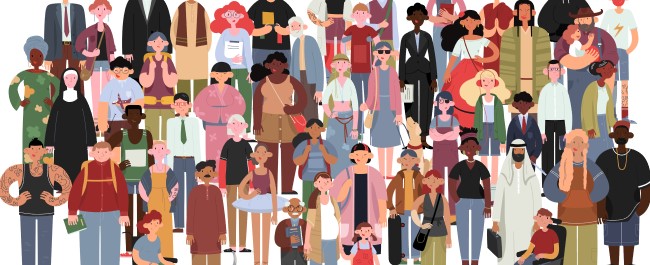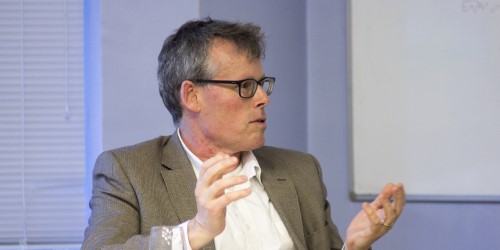Everyday integration

What’s so complicated about integration? And what does it mean to be integrated? These questions become easier to answer if we simply start with the routine things people are doing in the local contexts of their everyday lives.
The challenge
We should all be able to agree that integration is a good thing but the way we tend to talk about integration makes it more difficult. By focussing our efforts on certain segments of the population we deem as being in need of integration, we identify and even stigmatise those populations as somehow un-integrated, thus putting in place additional hurdles to their eventual integration.
By requiring would-be integrators to pass a Life in the UK test, we’re saying that successful integration means that they must adopt and embody our fundamental British values. But even if we can agree on what these values are, they only have meaning if they’re somehow connected to our everyday lives.
If integration is to be part of the solution, and not part of the problem, then it requires a fundamental rethink.
What we're doing
We are developing an approach to integration that involves everyone. We need to stop thinking that integration entails ‘them’ becoming like ‘us’. We need just an ‘us’ – all people coming together in meaningful and constructive ways in their everyday lives.
Our approach also starts from the bottom-up, with the nitty-gritty of everyday life, the routine encounters and exchanges we experience daily. These encounters and exchanges are the building blocks of integration. We can learn from the way they work and can do away with the things that prevent them from working.
Our approach to integration is local. Being part of a nation can be a good thing, but it’s still only something that can be experienced locally. Most of our lives are lived locally, so if we want to understand integration, it makes sense to begin in those grounded and local contexts of our everyday lives.
How it helps
By changing the way we think about integration we can improve people’s lives.
We can do this first by investing everyone in integration. If integration becomes, at its root, a meaningful exchange, then everyone can and should have an interest in it. This is not about us becoming more like them, or them becoming more like us, but about all of us getting on better with each other.
We can also simply recognise that by our definition of meaningful exchange, there’s already plenty of integration. We can learn from this: what works, what things bring us together in a positive way, and how can we scale up some of these routine interactions into better integration.
Finally, we can work together to better understand the things that continue to get in the way of integration. Racism, prejudice, insecurity, poverty, precarity, fear, immobility, and lots of other things that prevent us from coming together in productive ways. If we can understand how these barriers operate, then we can work together to reduce them.
Senior Research Associate
- Dr Natalie Hyacinth, School of Sociology, Politics and International Studies
Co-investigators
 Lead researcher profile
Lead researcher profile
Jon Fox, Professor of Sociology
Related research centres
Partner organisations
- Bristol City Council
- Ashley Community Housing
- Black South West Network
- Up Our Street
- Voscur
- Ambition Lawrence Weston
- Architecture Centre
- Babbasa Youth Empowerment
- Barker, Ben
- Barton Hill Settlement
- Bristol City Council Gypsy, Roma, Traveller Team
- Bristol City Council Neighbourhoods Directorate
- Bristol Disability Equality Forum
- Bristol Green Capital Partnership
- Bristol Multi-Faith Forum
- Bristol Refugee Rights
- Community CoLab
- Ecclestone, Vic
- Grassroot Communities
- Hartcliffe and Withywood Community Partnership
- Knowle West Churches Together
- Knowle West Media Centre
- Matthew Tree Project
- Refugee Women of Bristol
- Room 13, Hareclive Primary School
- SARI Stand Against Racism and Inequality
- Somali Resource Centre
- Towncentred
- Trinity Centre
- Ujima Radio
- United Communities
- Wellspring Healthy Living Centre